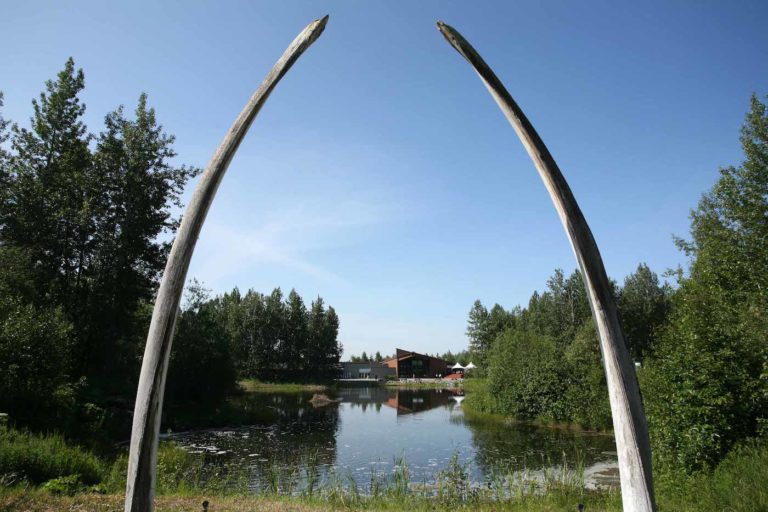The Alaska Native Heritage Center (ANHC) is a living heritage center located in Anchorage, Alaska. Although there are many tourist destinations in Alaska, Denali National Park for example, Anchorage should be thought of as the cosmopolitan center of Alaska, its largest and most populous city. The Alaska Native Heritage Center is an expansive site with indoor and outdoor components focusing on history and contemporary culture. The Heritage Center was initiated and curated by Alaska Natives as opposed to anthropologists or historians. The site as a whole can thus be understood as authored by Alaska Natives. The visitor experience, story of the center, and location provide many ways to bridge the site with the concept of cosmopolitanism. As I have experienced the site as a visitor, I will consider the center in relation to the notion of cosmopolitan curiosity, particularly in conjunction with scholar Natasha Eaton’s concept of cosmopolitan nostalgia. The ANHC serves as symbol of contemporary self-definition of Indigenous peoples. By placing the center in Anchorage, the Heritage Center founders were making a conscious choice to share their history and culture with non-natives. This enacts their sense of belonging in the world relating to cultural theorist Anthony Kwame Appiah’s central thesis of cosmopolitanism in Cosmopolitanism: Ethics in a World of Strangers (2006). Although not everyone has the opportunity to visit Alaska, those who do are likely to travel to Anchorage and once there to visit the ANHC. Due to colonization, indigenous peoples of the United States make up an extremely small percentage of the population, yet by no means are they—as outmoded anthropological monographs attest—‘disappearing’. By highlighting a contemporary example of indigenous living culture, I would like to consider how cosmopolitanism as a concept can incorporate this Indigenous mode of being into its larger global story.
Keyword: cosmopolitanism
Critical Purchase in Neoliberal Times
‘Critical Purchase in Neoliberal Times’ is an edited conversation with Ien Ang and three members of the Cultural Studies Praxis Collective (CSPC): Miriam Bartha, Bruce Burgett, and Ron Krabill. The transcript of the conversation conducted at the University of Washington was reworked and revised by the interlocutors. The document as a whole surfaces and addresses a series of questions about engaged and community-based forms of cultural studies scholarship; multiculturalism, cosmopolitanism, and media policy; and the future of the transnational field of cultural studies in the context of the neoliberal turn in global higher education.

